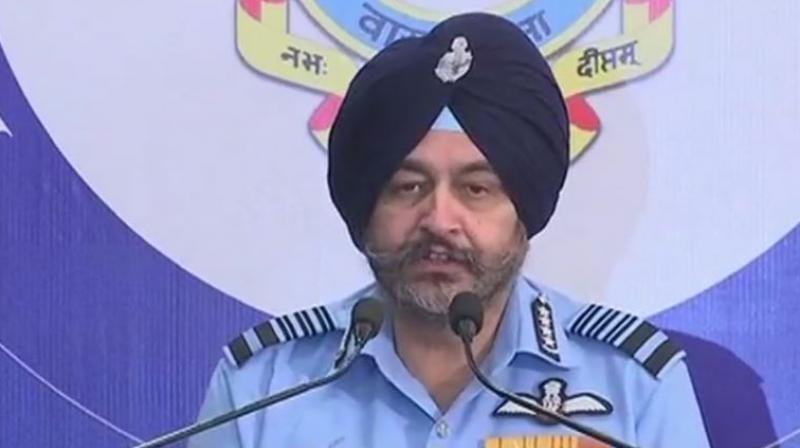Air Chief's remarks may ease tensions

Air Chief Marshal B.S. Dhanoa’s observations on Thursday, just ahead of Air Force Day, are well-timed. The remarks should remind our neighbours and the wider region, that India is adequately placed to protect its interests even in the event of a two-front military conflagration, which, he said, he did not foresee any time soon. The articulations should also help to lower tensions. The Air Force chief’s comments may be seen in consonance with the remarks of Army Chief Gen. Bipin Rawat at the height of the Doklam standoff with China, who had asserted that the Indian forces were perfectly capable of a two-front war. Although war is nowhere on the horizon, after the Indian “surgical strike” in September last year, Pakistani military and civilian leaders needlessly went into overdrive on belligerence, strutting their military status. In Pakistan’s case, it has been empty rhetoric all the way. Our misguided neighbour has sought to exploit a condition of nuclear overhang to conduct a proxy war against us, which is the best it can muster.
China too, in order to provide political solace to its “all-weather friend”, pitches in from time to time, as during the Doklam crisis, with heroic praise of its military machine in relation to India. In the overall circumstances, Air Chief Dhanoa has sought to bring a sense of proportion to the table. He has made it clear that he does not see fighting ahead, but was only speaking of capabilities and preparations in the context of potential threats. About a fortnight ago, Pakistan Prime Minister Shahid Khaqan Abbasi had done some showing off when he was in New York for the UN session. He spoke of his country’s tactical nuclear weapons to take on India in the context of India’s “Cold Start” doctrine and its claim of two-front war capability. The Indian Air Chief noted, perhaps keeping this in mind while answering a journalist’s question, that Indian Air Force can “locate, fix, and destroy” Pakistan’s nuclear capabilities (and other assets) according to India’s nuclear doctrine.
Pakistan is unstable and poorly led. It also possesses a force of unguided missiles in the shape of full-fledged terrorist irregulars. In the circumstances, it sometimes becomes necessary to explicate the overall balance to all concerned. China has a powerful military machine, of which it appears too proud. Air Chief Dhanoa brought a sense of realism to bear when he noted that the existing two-front capability of the Indian Air Force does take into account China’s lethal power in the Tibetan plateau. Henry Kissinger once said that India’s neighbourhood was one of the most dangerous in the world. India’s air power needs to possess greater lethality and it needs greater positioning than is the case at present, specially when seen in the context of protection of our incipient blue-water naval assets.

